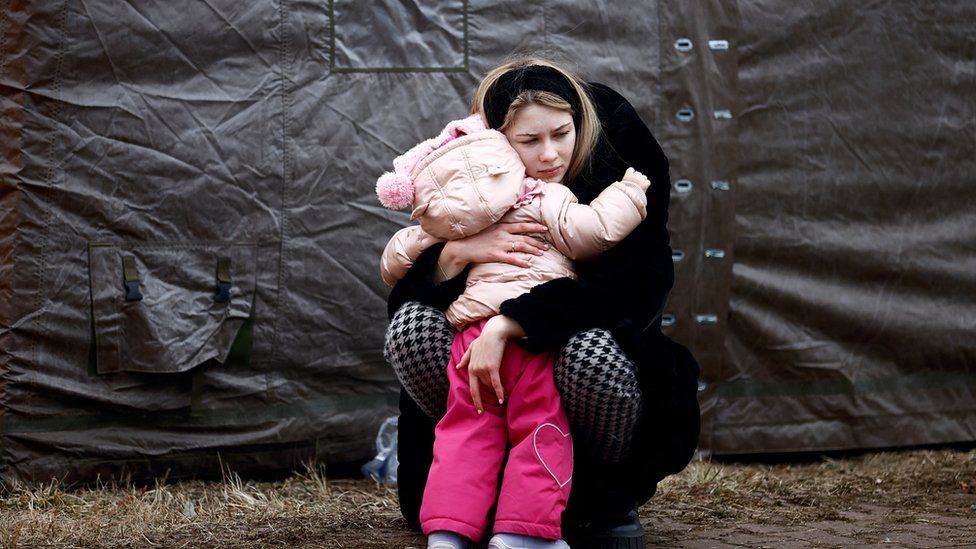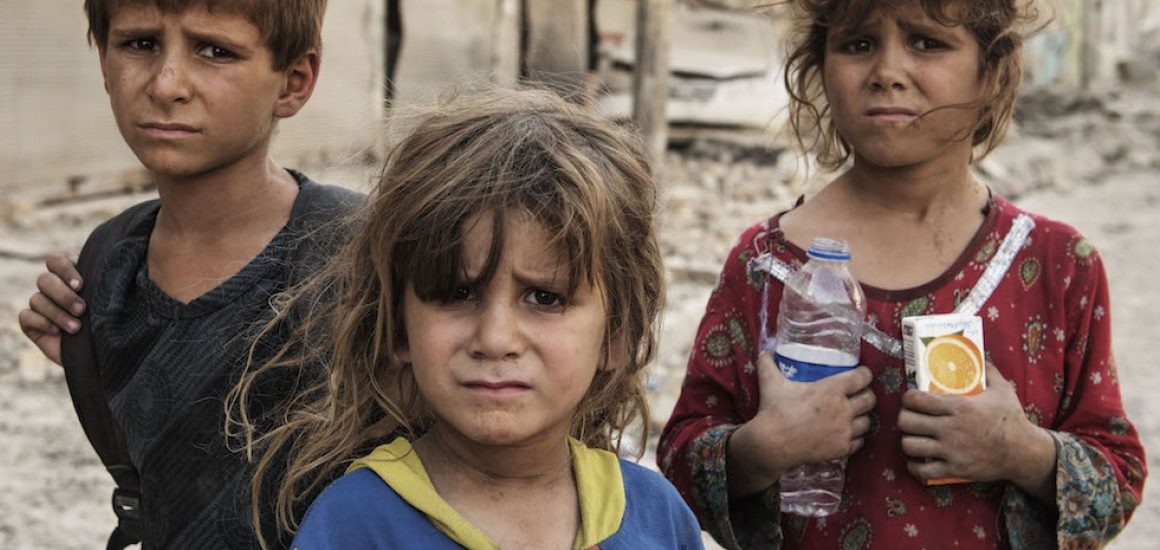There were children fleeing broken countries with their families long before the current Ukraine crisis. The estimated total of displaced children on the move globally is 50 million: a staggering number, each statistic a fearful child taking extreme risks for the chance of a better life. (American Psychological Association)
The ancient Metta Sutta is famous for its meditation on generating loving-kindness for all beings. In particular, one passage encourages us to generate metta from the perspective of a mother that looks upon their only child:
Just as with her own life
A mother shields from hurt
Her own son, her only child,
Let all-embracing thoughts
For all beings be yours.
(Metta Sutta)
This is an imaginative tool, exercised to train empathy. In times of war and chaos, the meditation of metta could be reimagined as a radical focus on suffering children: there is no theoretical construct needed; the pain of children is something we instinctively wish to remove. Refugee children are in a bind that adults can barely imagine for themselves, let alone especially vulnerable young people. This passage from the Metta Sutta also invites an imaginative exchange of empathy on part of the child. We are invited to put ourselves in a child’s shoes and generate love and compassion for the mother figure, and remind ourselves that every being at some point in cosmic time has been our loving mother. It is heart-wrenching for any mother to have to leave home due to conflict or danger. To place ourselves in their pain and anxiety about trying to build a life elsewhere as the one they have known since their child’s birth crumbles, is a meditation that will generate a deep well of compassion.

Because Ukraine is under martial law and men are being conscripted to fight, the overwhelming majority of refugees are women and children and face staggering difficulties. Some have been fortunate enough to be taken in by European families, or find shelter with relatives overseas. Yet, according to a report from The South China Morning Post, “most are living in temporary shelters in the extreme cold and are short of food. . . . Ukrainian women and children seeking to cross into Poland face long delays. And millions of Ukrainians have been internally displaced, with the western city of Lviv reaching its capacity to accommodate extra people.” (The South China Morning Post)
Children are especially vulnerable to hypothermia and mental trauma as they suffer the sights and sounds of explosions, artillery attacks, and adults scrambling to protect them or running for their lives.
The experience of escaping conflict or war-torn areas, being exposed to abuse, and difficulties in integrating or being detained in the country of arrival can be shared by the entire family, but once more, children are acutely at risk of neglect, economic deprivation, or physical and sexual violence.
The crisis of refugee women and children became so urgent in recent years that the UN adopted a resolution for people of refugee status on 19 September 2016. The New York Declaration for Refugees and Migrants was promulgated by the General Assembly, with several articles addressing children specifically. The most “general” of the articles, 29 and 59, addressed the deeply dangerous situation facing dislocated children:
- 29. We recognize and will take steps to address the particular vulnerabilities of women and children during the journey from country of origin to country of arrival. This includes their potential exposure to discrimination and exploitation, as well as to sexual, physical and psychological abuse, violence, human trafficking and contemporary forms of slavery.
- 59. We reaffirm our commitment to protect the human rights of migrant children, given their vulnerability, particularly unaccompanied migrant children, and to provide access to basic health, education and psychosocial services, ensuring that the best interests of the child is a primary consideration in all relevant policies.
(UNHCR)
Each stage of the refugee’s journey, from departure to settlement, is addressed in this resolution. However, policymakers cannot go it alone because refugees are a politically and culturally charged subject. From displacement in the Middle East, to asylum seekers from Africa, to the people attempting to cross the US-Mexico border from Central and South America, the state of being a refugee has been exploited in varying ways by political interests, at great detriment to better understanding what a refugee truly is. It is a problem that is replicated around the world, especially when the refugees in question are from the Global South and trying to go into Europe, the US, or other developed economies.
Political concerns, even if they might seem paramount should be cut through with metta meditation, by seeing these children for what they simply and truly are. Compassion is lasting and all-encompassing.
See more
Ukrainian refugees suffer as the world slowly wakes up to growing humanitarian crisis (The South China Morning Post)
Mental health challenges and interventions for refugee children (American Psychological Association)
New York Declaration for Refugees and Migrants (UNHCR)
Related news from Buddhistdoor Global
Polish Buddhist Center Offers Refuge to Nepalis Fleeing Ukraine
Engaged Buddhism: Buddhist Tzu Chi Foundation Responds to Ukraine Refugee Crisis
A Call for Peace and Action: Ven. Pomnyun Sunim Appeals for Restraint in Ukraine
Dalai Lama Expresses Sadness Over Ukraine Crisis
Prayers for Peace: Spiritual Leaders and Communities Respond to the Humanitarian Crisis in Ukraine
Related features from Buddhistdoor Global
Buddhistdoor View: What Is Lost when Warmongers Win?
Buddhistdoor View: Praying for Ukraine Across Religious Identities
Related blog posts from Tea House
Displaced Dharma: Ukraine’s Crisis of Refugee Children
A Buddhist Prayer for Peace in Kyiv


